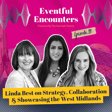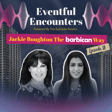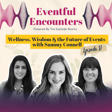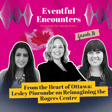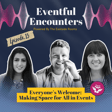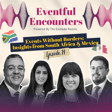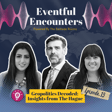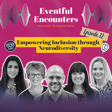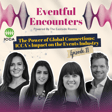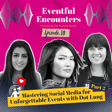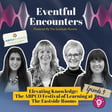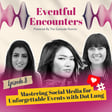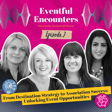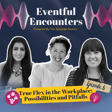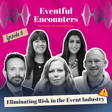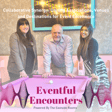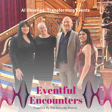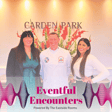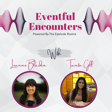
Navigating Menopause in the Event Industry: Breaking the Silence
In our latest episode of Eventful Encounters,, we tackle a topic that's often overlooked yet profoundly impactful: menopause in the events industry. Our guests, Jo Fuller from The Merry Menopause and Jill Hawkins from Aniseed PR, share their personal and professional experiences, offering invaluable insights into navigating this natural phase of life.
The books mentioned in the session are:
Here you go… Code Red: Know your Flow – Lisa Lister
A Better second half: Dial Back your Age to Live longer, Healthier, Happier Life - Liz Earle
Women Rowing North: Navigating Life’s currents and Flourishing as we age – Mary Pipher
The Definitive Guide to Perimenopause & Menopause – Dr Louise Newson
Menopause – Dr Louise Newson
Wise Power: Discover the Liberating Power of Menopause to awaken authority, purpose and belonging – Alexandra Pope and Sjanie Hugo Wurlitzer
Wild Power: Discover the Magic of your menstrual cycle and awaken the feminine path to power – Alexandra Pope and Sjanie Hugo Wurlitzer
